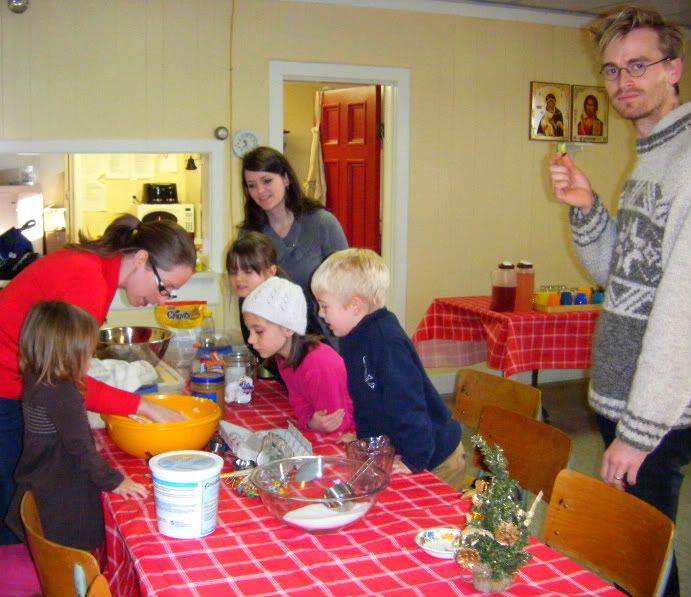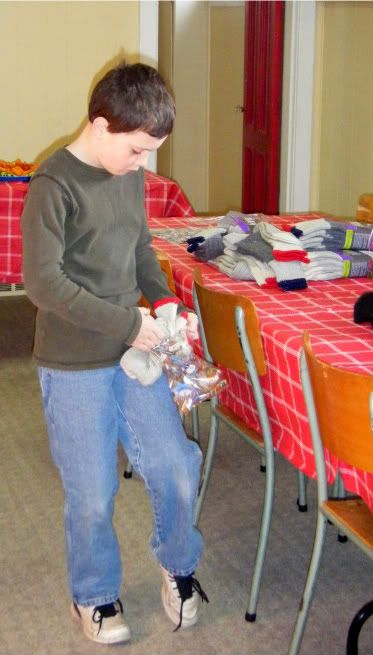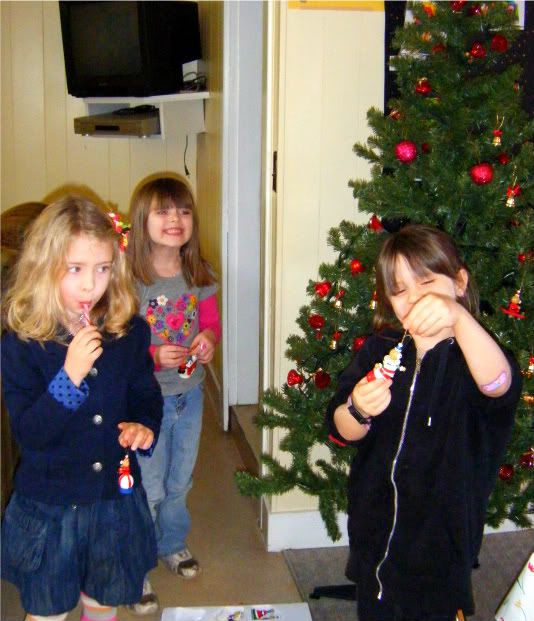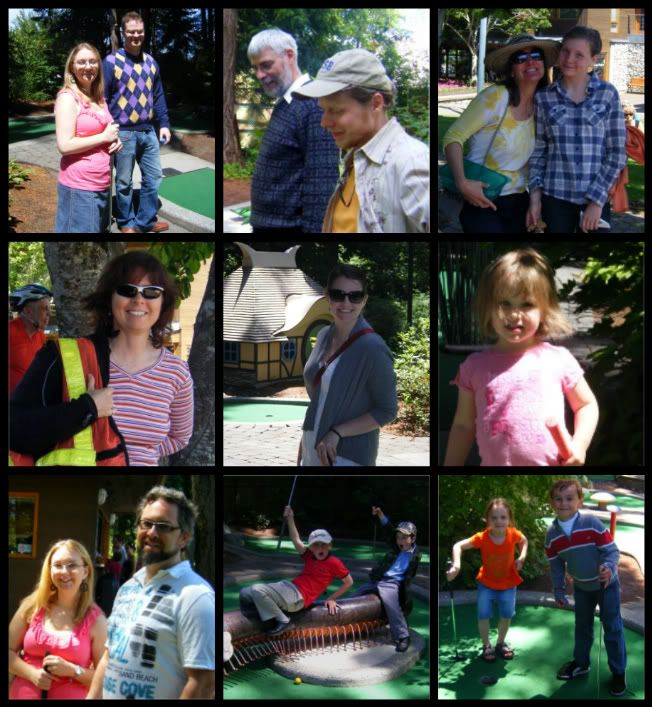It's Halloween again. As I was standing outside a department store today, I saw a man enter the paved area, walking from an adjacent neighborhood, and take a quick drag from his cigarette. When I looked up, I noticed that the flesh on his chin had been peeled away and the blood was dripping onto his yellow t-shirt. As he passed people, they looked up in amazement, then either smirked, or hurried on their way, looking unsettled. He did not enter any of the stores, but merely walked along the sidewalk, enjoying the spectacle he obviously intended to be.
Other than aesthetically, I was not impressed. Who gets kicks by walking around looking like you're wounded and frightening children? Losers. I'm sorry, but that's simply what they are. Anything done casually which is sure to strike spontaneous fear into the heart of a child is malicious and banal.
But the more deeply disturbing element to the various antics which people decide to perform in the few days prior to Halloween is their celebration of - not death - but evil, and goriness. One more way for people to express themselves through items or outfits they purchase; one more consumerist holiday.
The ironic thing is that Halloween really is a holiday. That is, a holy-day. That is, a hallowed evening (e'en). Or at least used to be. On the western liturgical calendar, it precedes All Souls Day, or All Saints Day, and the traditions which have clustered around its celebration of holiness are many and diverse. Only some have survived and, as with most religious festivals, they've been successfully stripped of their function as convivial 'thick' moments in which to remember and commune with those we love, in God's name, especially for the lives of the saints. All Saints Day extends this impulse to the innumerable anonymous saints which have populated and enlightened history, but without ever gaining particular ecclesiastical recognition.
But how far this is from what Halloween now is in contemporary North American culture! I remember living in Old Town (San Diego), right across the street from El Campo Santo, a cemetary from the 19th c., and just down the road was the Whaley House, the second most haunted house in California. On Halloween every year there would be various costumed hooligans running around, and 'ghost-hunters' projecting their photos of ghosts (usually strange blurry orbs of light indoors) on the back wall of the Whaley house, where the old willow tree (that they used to hang people from) still stood.
One time, Megan and I - in a reenactment of a medieval German tradition - brought tea-light candles and small cookies out to the small cemetary and placed them on the graves; local Bavarian tradition held that the souls of the dead would come out on Hallowe'en, and visit the homes of their loved ones, who left the stove on (for the ghosts to warm themselves with) and cookies (for a spiritual snack). The paradox of giving physical items to spiritual entities of course makes us snicker; but, after all, as Orthodox, we proclaim the utter ultimate inextricability of body and soul. Death indeed parts them, but in a way that we don't understand, and the reality of 'paranormal' activity/entities seems too numerous to discount prima facie. Yet, after all, Christ has conquered death, and 'even the devils believe in Him, and tremble'. And so, as Orthodox, we proclaim the reality of non-physical entities such as angels and demons, and thus in some sense we take seriously the existence of things which exceed the quantifiable parameters of disenchanted reason.
But ghosts? Well, Holy Scripture has some pretty amazing accounts of what seem accurately considered as ghosts. See, for example, 1 Samuel 28, where Saul - filled with fear from the approaching Philisitnes - visits the 'medium of En Dor'. The passage itself is worth including. Incidentally, this passage was the OT reading at Vespers last night (Oct 29):
3 Now Samuel had died, and all Israel had lamented for him and buried him in Ramah, in his own city. And Saul had put the mediums and the spiritists out of the land.
4 Then the Philistines gathered together, and came and encamped at Shunem. So Saul gathered all Israel together, and they encamped at Gilboa. 5 When Saul saw the army of the Philistines, he was afraid, and his heart trembled greatly. 6 And when Saul inquired of the LORD, the LORD did not answer him, either by dreams or by Urim or by the prophets.
7 Then Saul said to his servants, “Find me a woman who is a medium, that I may go to her and inquire of her.”
And his servants said to him, “In fact, there is a woman who is a medium at En Dor.”
8 So Saul disguised himself and put on other clothes, and he went, and two men with him; and they came to the woman by night. And he said, “Please conduct a seance for me, and bring up for me the one I shall name to you.”
9 Then the woman said to him, “Look, you know what Saul has done, how he has cut off the mediums and the spiritists from the land. Why then do you lay a snare for my life, to cause me to die?”
10 And Saul swore to her by the LORD, saying, “As the LORD lives, no punishment shall come upon you for this thing.”
11 Then the woman said, “Whom shall I bring up for you?”
And he said, “Bring up Samuel for me.”
12 When the woman saw Samuel, she cried out with a loud voice. And the woman spoke to Saul, saying, “Why have you deceived me? For you are Saul!”
13 And the king said to her, “Do not be afraid. What did you see?”
And the woman said to Saul, “I saw a spirit[a] ascending out of the earth.”
14 So he said to her, “What is his form?”
And she said, “An old man is coming up, and he is covered with a mantle.” And Saul perceived that it was Samuel, and he stooped with his face to the ground and bowed down.
15 Now Samuel said to Saul, “Why have you disturbed me by bringing me up?”
And Saul answered, “I am deeply distressed; for the Philistines make war against me, and God has departed from me and does not answer me anymore, neither by prophets nor by dreams. Therefore I have called you, that you may reveal to me what I should do.”
16 Then Samuel said: “So why do you ask me, seeing the LORD has departed from you and has become your enemy? 17 And the LORD has done for Himself[b] as He spoke by me. For the LORD has torn the kingdom out of your hand and given it to your neighbor, David. 18 Because you did not obey the voice of the LORD nor execute His fierce wrath upon Amalek, therefore the LORD has done this thing to you this day. 19 Moreover the LORD will also deliver Israel with you into the hand of the Philistines. And tomorrow you and your sons will be with me. The LORD will also deliver the army of Israel into the hand of the Philistines.”
20 Immediately Saul fell full length on the ground, and was dreadfully afraid because of the words of Samuel. And there was no strength in him, for he had eaten no food all day or all night.
I think there are several key things to notice in reading and attempting to find the significance of what is happening here. The first is that Saul is afraid, and acts out of fear. He does not act in trust that the Lord will deliver the Israelites from their approaching enemies. So he goes to a medium, otherwise translated as 'witch.' This is someone who engages in (what shall we say?) a practice which involves contacting the dead, but in a way other than prayer. Interestingly enough, seances had been forbidden by Saul, but here Saul trespasses his own word, which is another indication of his fear and desperation, and lack of trust. Desperate times, Saul likely thought to himself, call for desperate measures. Yet as Christians this is perhaps a response we must resist; trusting in the Lord is something for all times, confident or desperate, thankful or pleading.
The other important thing to notice, I think, is that Samuel does in some sense appear and become present to the medium and Saul, yet presumably as a spirit, or soul. He ascends from "out of the earth." Origen reads this passage as indicating Samuel's role as a prophet in Sheol, as one who proclaims the Lord's coming to those who will be resurrected by Him in His harrowing of hell, such as Adam, Eve and the Patriarchs. David, of course, is still alive, and the spirit of Samuel himself tells Saul that David has God's favor, and confirms that Saul doesn't, which is why he's trying to contact Samuel in the first place. Beyond that, Samuel prophesies that Saul will soon join him in Sheol, indeed, "tomorrow." These are hard words, and Saul's response indicates his shock.
But more relevantly, that the ghost of Samuel appears here seems an important verification of at least some of the circulating lore around medieval and contemporary Halloween - that spirits can in some sense be encountered by us embodied folk. For some Orthodox, this is simply obvious. For some, outrageous. More work needs to be done within the Church about this issue, I think, even if primarily as theologoumena.
Another example of Israelite spectrality comes in a passage which serves as an instructive parallel with 1 Samuel 28, and another ascension from the earth, though different. It is John 20: 19-29, and was the Gospel reading at the same Vespers service, immediately following the reading of 1 Samuel 28. Whichever saint pieced together the lectionary knew what he was doing:
19 Then, the same day at evening, being the first day of the week, when the doors were shut where the disciples were assembled,[c] for fear of the Jews, Jesus came and stood in the midst, and said to them, “Peace be with you.” 20 When He had said this, He showed them His hands and His side. Then the disciples were glad when they saw the Lord.
21 So Jesus said to them again, “Peace to you! As the Father has sent Me, I also send you.” 22 And when He had said this, He breathed on them, and said to them, “Receive the Holy Spirit. 23 If you forgive the sins of any, they are forgiven them; if you retain the sins of any, they are retained.”
24 Now Thomas, called the Twin, one of the twelve, was not with them when Jesus came. 25 The other disciples therefore said to him, “We have seen the Lord.”
So he said to them, “Unless I see in His hands the print of the nails, and put my finger into the print of the nails, and put my hand into His side, I will not believe.”
26 And after eight days His disciples were again inside, and Thomas with them. Jesus came, the doors being shut, and stood in the midst, and said, “Peace to you!” 27 Then He said to Thomas, “Reach your finger here, and look at My hands; and reach your hand here, and put it into My side. Do not be unbelieving, but believing.”
28 And Thomas answered and said to Him, “My Lord and my God!”
29 Jesus said to him, “Thomas,[d] because you have seen Me, you have believed. Blessed are those who have not seen and yet have believed.”
Here we have the appearance of the risen Christ to the disciples, and the amazing yet oblique reference to the capacity of His risen body to - in a ghostlike fashion - move through walls, or at least become manifest wherever He wills. There are two aspects of Christ's appearances which I'd like to point out as particularly important. The first is His breathing on the Disciples, imparting his Spirit to them. The obvious thing is that one needs lungs to breath; in other words, Christ's breathing forth of the Spirit did not come from a spirit; it came from a man, risen from the dead. This is more clearly enunciated by Christ Himself in His second appearance, this time in the face of Thomas' doubts.
Thomas, perhaps, like Saul, would be more content to see a ghost. Yet Christ insists that He is more than a ghost, urging Thomas to touch his wounds. And Thomas' response gains an added importance in light of Christ's manifest materiality; it is here that Christ's divinity is most explicitly proclaimed - 'My Lord and my God!' [in Greek, more like: 'the Lord my, and the God my!'] - and precisely in response to the visceral experience of the Incarnation, of Christ's physical flesh and blood. Christ is seen to be truly God, that is, only when He is seen to be truly Man: the saving Paradox. In the face of this encounter, the skewed emphasis on ghostly, bodiless souls in Halloween seems almost gnostic. Christ's resurrected body, and the hope of our own resurrected bodies someday (with All the Saints), should perhaps always condition our understanding of Hallow-e'en, which is an annual event gesturing toward the reality of paranormality, but only as the pre-Parousia condition of a world still free to choose death instead of the Incarnate Paradox Who is Life.









